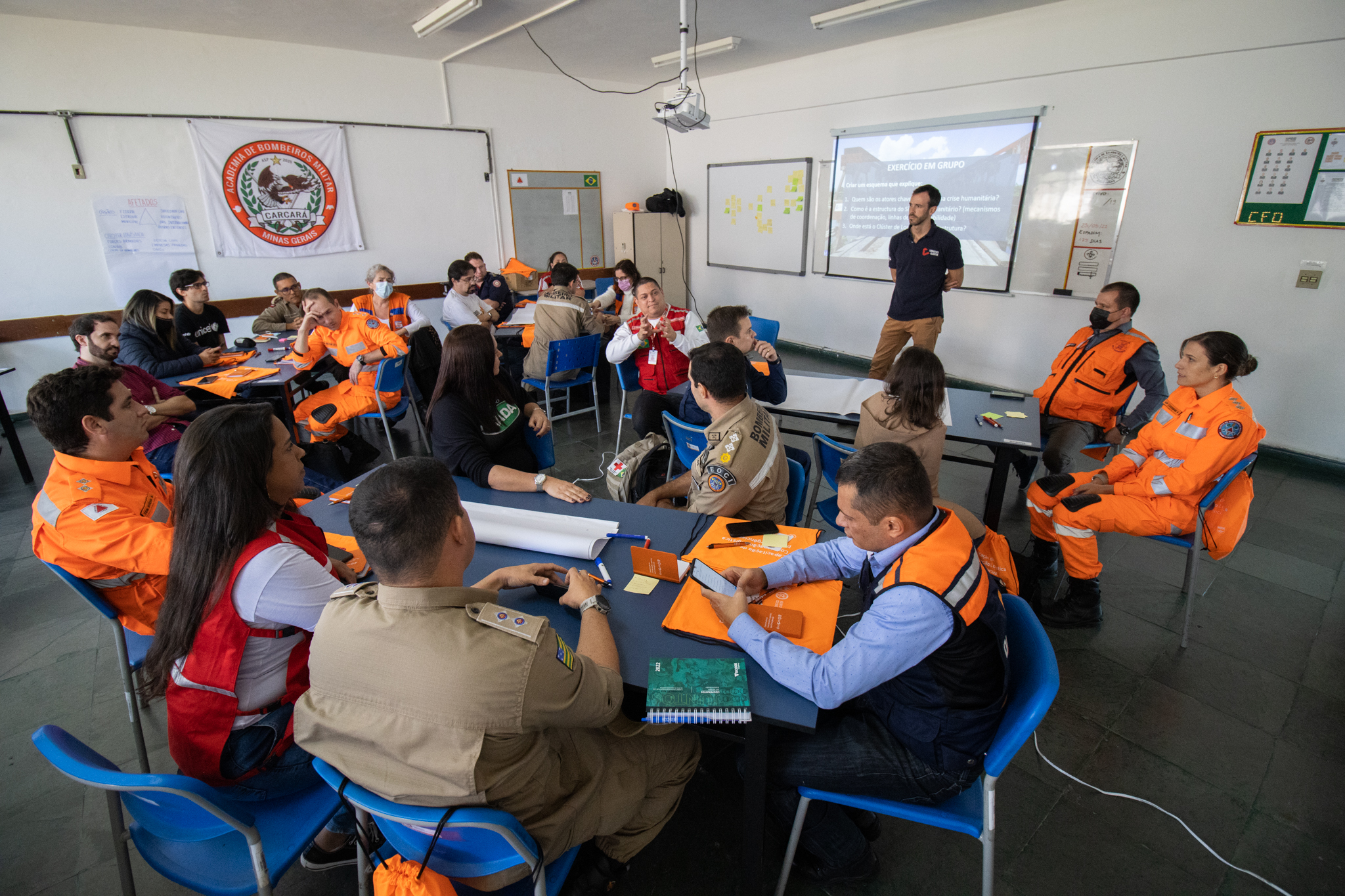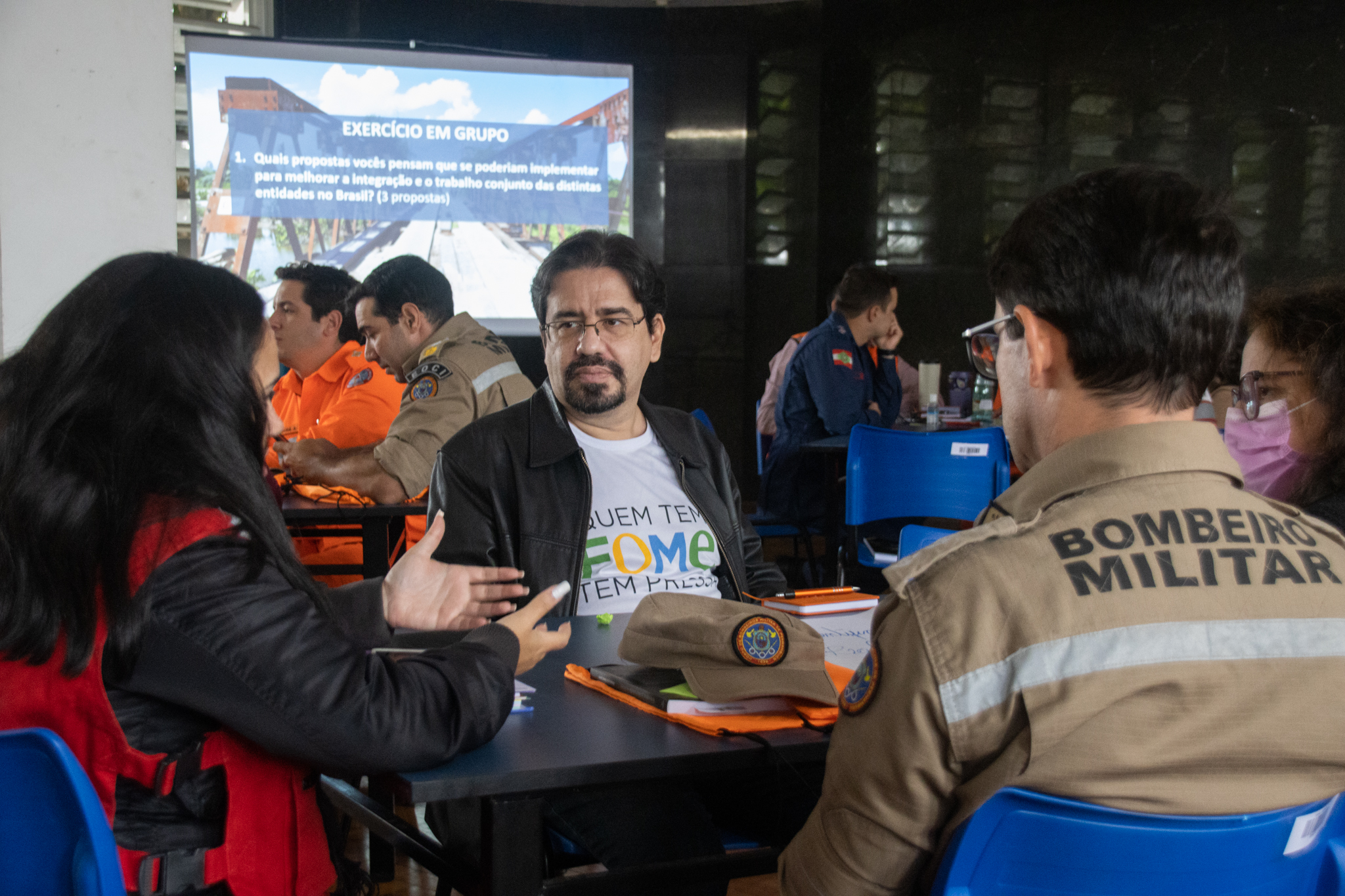
The United Nations World Food Programme (WFP), as the leading agency of the Logistics Cluster, provided a logistics preparation training for emergencies in Brazil, between May 24 and 26. The training, which took place for the first time in the country, was requested by the Minas Gerais Military Fire Department and addressed topics such as the humanitarian system, Logistics Cluster operations, as well as practical exercises and field visits. The objective was to allow participants to survey common logistical challenges in the country to strengthen coordination, avoid duplication of efforts and seek solutions to respond more efficiently to extreme situations.
Brazil faces chronic natural disasters throughout the year, including heavy rains that cause floods and landslides, as well as droughts and deforestation that cause forest fires. “The exchange of experience between the United Nations and the Fire Department is a very powerful novelty. We hope that this training can improve coordination during emergencies attended by national actors,” said Eric Itin, a Logistics Cluster specialist.
“To think that we are self-sufficient in logistics response to emergencies is a serious mistake. The focus on preparation is very important, we are learning it here. With this type of unprecedented training, the entire population of Brazil will win”, said Edirlei Viana, director of institutional affairs of the Military Fire Department of Minas Gerais.
The training brought together representatives from organizations that work in emergency response in Brazil, including partners of the WFP Centre of Excellence against Hunger, such as local NGO Ação da Cidadania and the National Supply Company (Conab). Carlos Antônio, National Network Coordinator at Ação da Cidadania, took part in the training. He explained that the NGO has been responding to emergencies and disasters over the past year, including, for example, flood support in Petrópolis.

“A challenge that we have is to work in a coordinated way with other organizations, so a meeting like this, which strengthens these relationships, facilitates exchanges, which will bring positive impacts for the people we serve,” said Carlos Antônio. “The content of the course has helped a lot to professionalize our performance and we will share this knowledge with the emergency unit we are creating”, he added.
Representatives from the Red Cross, Civil Defense, United Nations agencies, international NGOs, logistics companies and firefighters from all regions of the country also participated in the training. Learn more about the Logistics Cluster here.




